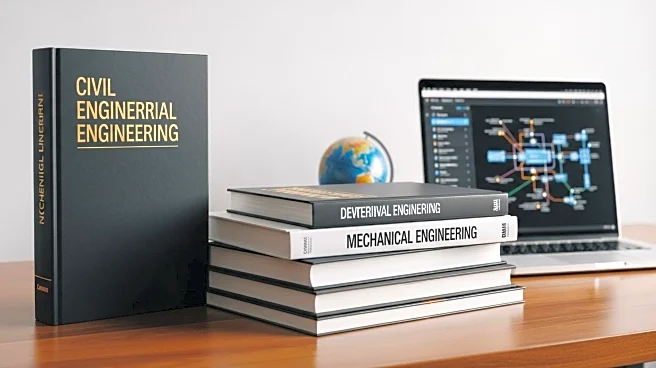What's Happening?
The IEEE, the world's largest technical professional organization, is actively supporting the development of engineering talent in Africa. This initiative is highlighted by the story of Oluwatosin Kolade, an undergraduate engineering student from Nigeria, who reached out to IEEE Spectrum to contribute as a robotics editor. Although the position was already filled, Kolade was offered mentorship to develop his writing and editing skills. This mentorship is part of a broader effort by IEEE to empower young engineers in Africa by providing access to educational resources, reliable electricity, and broadband connectivity. The organization is also facilitating professional connections through events like the IEEE ICRA robotics conference, which Kolade attended in Atlanta, thanks to a scholarship from the IEEE Robotics and Automation Society.
Why It's Important?
This initiative by IEEE is crucial for the development of engineering talent in Africa, a region that has historically struggled with access to necessary resources. By providing educational support and networking opportunities, IEEE is helping to bridge the gap in engineering education. This support is expected to enhance the skills of young engineers, enabling them to contribute to technological advancements in their countries. The focus on improving access to electricity and broadband is particularly significant, as these are foundational elements for modern engineering education and practice. The potential impact includes increased innovation, economic growth, and improved infrastructure across the continent.
What's Next?
IEEE's continued support is likely to expand, with more students like Kolade benefiting from scholarships and mentorship programs. The organization may also increase its efforts to improve infrastructure, such as electricity and broadband access, which are critical for the success of engineering education in Africa. As more students gain access to these resources, there could be a significant increase in the number of skilled engineers in the region, potentially leading to technological innovations and economic development. Stakeholders, including governments and educational institutions, may collaborate with IEEE to further these goals.
Beyond the Headlines
The IEEE's efforts highlight the importance of international collaboration in education and technology. By supporting African students, IEEE is not only contributing to the development of individual careers but also fostering a global community of engineers. This initiative underscores the ethical responsibility of established organizations to support emerging talent in under-resourced regions. The long-term impact could include a more diverse and inclusive engineering workforce, with African engineers playing a significant role in global technological advancements.








